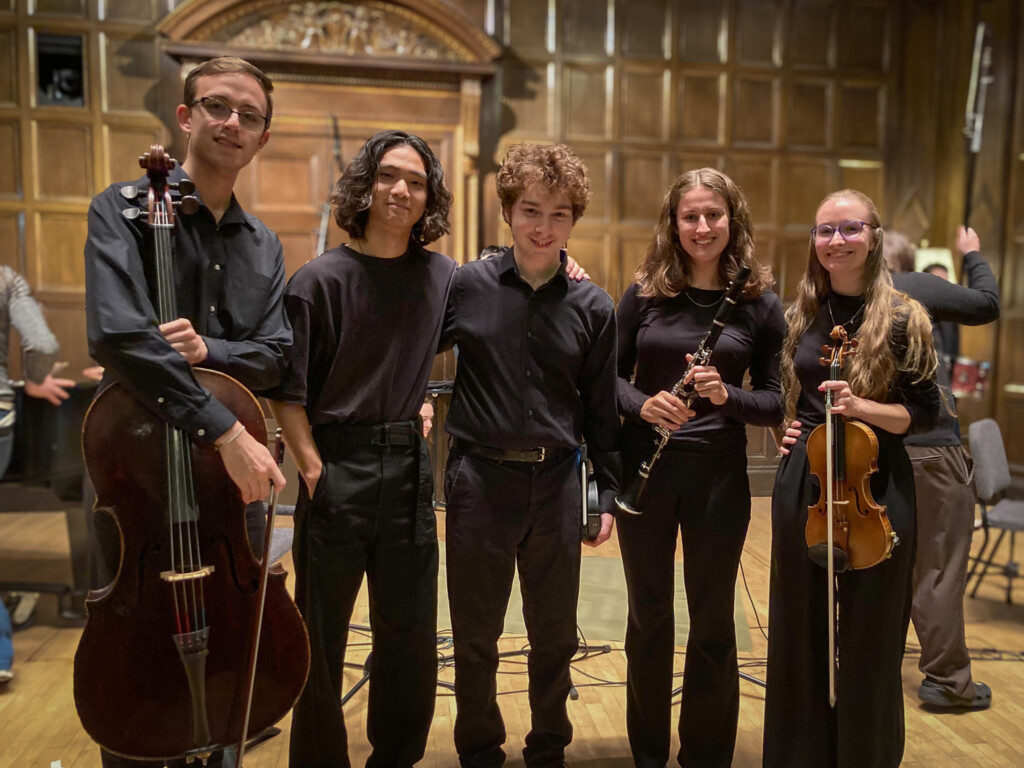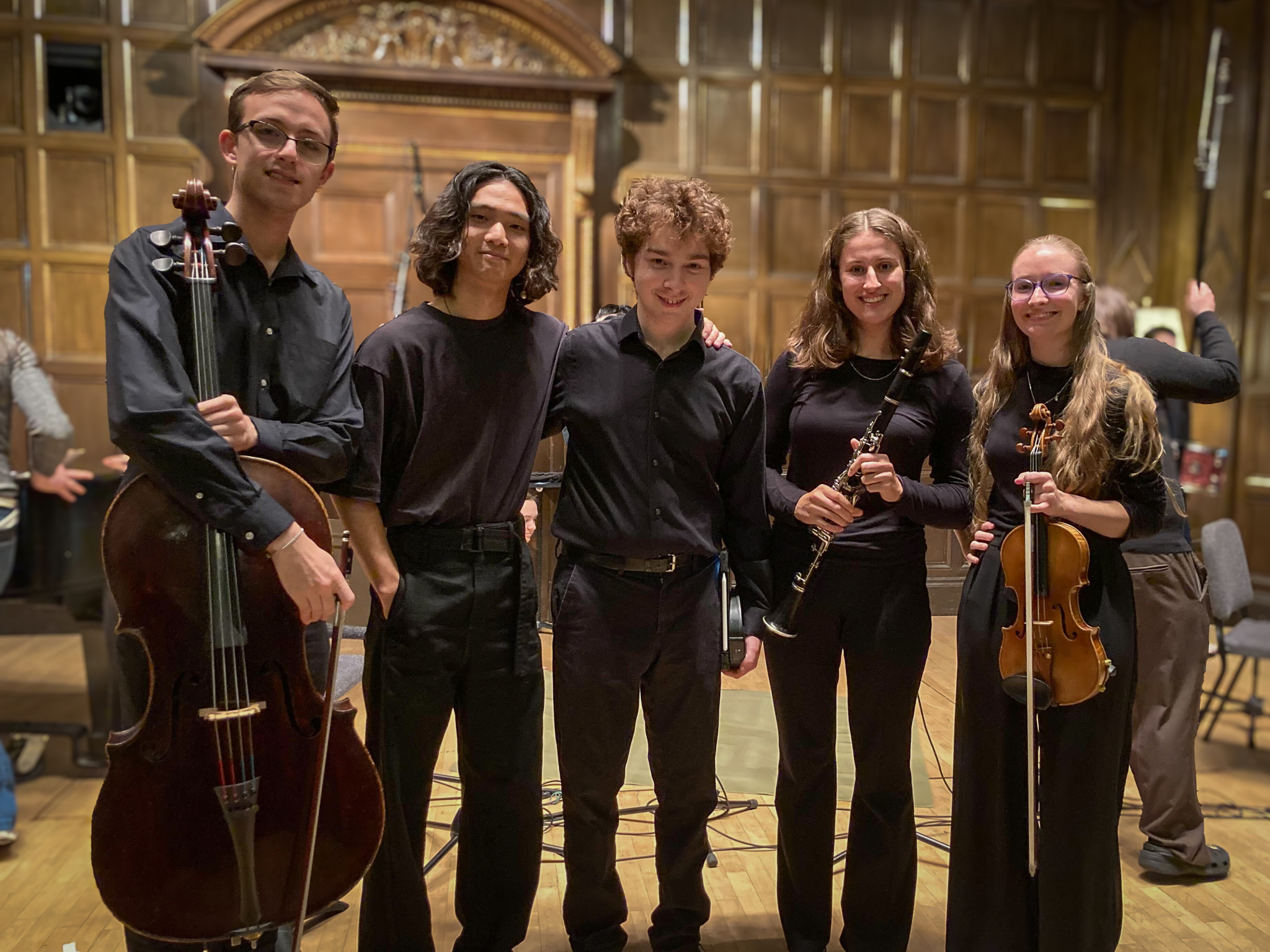Golden light spilled from the suspended light fixtures of Eastman’s Kilbourne Hall, bathing the auditorium in a welcoming, enveloping glow. Precisely at 7:30 p.m., this glow retreated as the hall lights dimmed, centering all attention onto the raised stage.
It was the evening of Wednesday, Oct. 2, and little did I know I was about to bear witness to a demonstration of chaotic beauty unlike any I had seen before.
OSSIA New Music is a student-run organization at Eastman dedicated to the performance and promotion of contemporary classical composers. This evening, at their first concert of the 2024-2025 season, they performed works by Alexander Schubert, Max Vinetz, and Osnat Netzer, the second of whom was present in the audience and introduced his work prior to its performance.
The group first performed “Point Ones,” a piece by Schubert and conducted by Immanuel Mykyta-Chomsky. Although it is usually the conductor’s role to keep time for the group, cue entrances, and guide musical expression, for this piece the conductor had a different role: to make music with the players.
Mykyta-Chomsky wore electronic sensors on their hands, which activated certain prespecified electronic beeps, whistles, and other marked noises with their movements. The players sounded their instruments in relation to these electronics, resulting in a uniquely dynamic performance featuring long, hollow-sounding tones, polyrhythmic beeping, and musical conversations between the players and the conductor. Sitting in the audience and watching the scene unfold before me, it felt as if I were witnessing an aural representation of an action-packed sci-fi film complete with aliens, robots, and space wars.
After a brief intermission, a new set of musicians took the stage to perform “here,” accompanied by composer Max Vinetz. He explained that the piece includes spoken word as a response to the depression and eating disorders he had dealt with in college, and encouraged the audience to pay attention to these words, which were played on a pre-recorded backing track.
These consisted of numerous voices speaking, sometimes in sequence and sometimes simultaneously, ranging from mellow invitations to “close your eyes” to preppy influencer-style statements that “a lot of you guys have asked me how I put together my apple cider vinegar.” It was a touching, personal, and deeply emotional experience.
Floating over all of this were the susurrant resonations of the live musicians, swelling and falling back in tandem with the vocal tracks in a mellow, enveloping, and utterly gorgeous performance.
The third and final piece of the evening, “I won’t be outrun by a cavalry of snails,” provided a stark contrast to end the concert. Described by composer Netzer as “a theatrical, absurdist, psychedelic adventure,” the composition creates a fantasy world “in which the listener can almost piece together a semantic meaning, but that meaning always escapes them.”
It lived up to expectations.
With its unusual instrumentation — including but not limited to the pianist drumming on the body of the instrument, vocalists alternating between beatboxing and singing nonsense syllables, and strings executing consistent glissandi in extremely dissonant intervals — “I won’t be outrun by a cavalry of snails” seemed to emulate the sheer entropy of nature. I mean this in the best possible way.
Sitting in Kilbourne Hall, it felt as if I was listening to the chatter of squirrels, the chirping of birds, the buzz of insects, and the howling of coyotes; and all the while a rainstorm is passing through, sometimes gently caressing the listener; sometimes beating down with passionate doggedness.
Some contemporary classical music has gathered a reputation among classical musicians for being overly difficult and unappealing compared to the standard Mozarts and Shostakoviches of classical repertoire. But if this concert taught me anything, it is that contemporary classical music can be just as exquisite.



